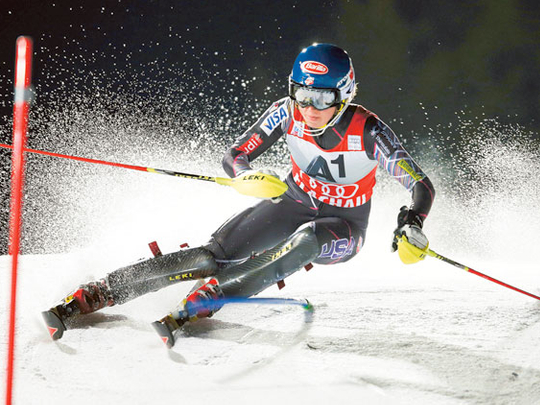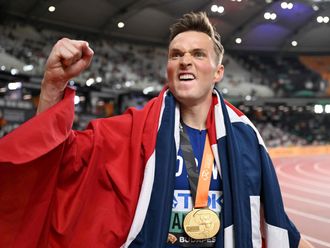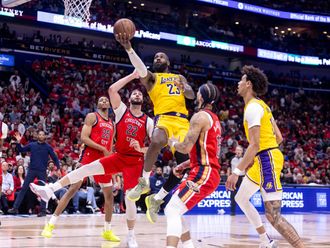
Paris: When Mikaela Shiffrin took world slalom gold last season, she became the youngest American to be crowned a ski champion on the global stage.
In the absence of the injured Lindsey Vonn, she will now head up the US women’s ski team at next month’s Olympics in Sochi, with the eyes of a nation fixed on her moves.
After her world championships victory in Schladming, it quickly became evident that Shiffrin was no schoolgirl who happened to be a good skier on the side. Her whole life had been geared around her sporting prowess.
“It’s been 17 years in the making. Everyone says it comes so fast, but it seems like it’s been forever for me,” Shiffrin said after her gold medal showing.
Shiffrin donned her first skis at the age of three in Vail, Colorado, where she grew up, and soon began racing, pushed by her parents and a desire to copy her ski-racing brother.
She left Vail at the age of eight to join Burke Mountain Academy, a private school specialising in ski racing, before making her World Cup debut in March 2011. Eight months later, she finished eighth in Aspen.
“Ever since she was little, she would go until the sun went down,” Eileen Shiffrin said of her hard-working daughter.
Eileen, herself a ski coach, travelled extensively to be by the side of Mikaela, often paying her own way and raising questions of how parents can push their offspring into high-level sport.
“Because she skis so efficiently, everyone perceives Mikaela as this perfectly prepped, organised little machine,” Eileen told the New York Times in an interview in September.
“People think we’ve had this masterplan to produce a world champion. We have no plan.”
Nonetheless, Eileen goes on to insist her daughter’s achievements are down to skill development and shunning goal-setting in intensive training that always involved the family.
So is it on a level with the Richard Williams-type planning that saw tennis stars Serena and Venus become multi-Grand Slam-winning sisters?
And does it harbour any warning signs of the fall-out of other vaunted tennis stars such as Andre Agassi, Bernard Tomic, Richard Krajicek or Marion Bartoli with their pushy mums and dads?
Not yet, it seems, at least in the latter case.
“What we always sought was normalcy,” says Eileen Shiffrin, although her daughter admits, among other things, to having been sent on a two-mile loop around her home on a unicycle while juggling to improve balance and coordination.
She also did her homework three nights a week in the car en route to ski race training, which routinely happened five times a week.
Father Jeff, an anaesthesiologist and volunteer ski coach, added in the NYT interview: “Some people might call our approach intense.
“But it’s not, because the motivation is not to be better than other people at something. The motivation comes from a belief that almost anything can be mastered if you’re willing to put in the hours to master it.
“If you’re going to do something, do it as best as you can.”
With her long blonde hair, ready smile and lissome build, there is no doubt that Mikaela has the ability to capture a great deal of attention in Sochi, both on and off the piste.
“With the Olympics coming up, there are cameras everywhere and I’m more aware of my beauty habits,” she admitted in a recent interview, signalling concerns over splotchy, red skin tone because of wind and sun.
“Out on the hill under the helmet, nobody sees your face or hair, but then you take it off and they do — that’s the part I’m nervous about.”
Mikaela certainly does not seem nervous about competing.
“I know that in the United States, the Olympics are the only time millions and millions of people watch ski racing, so it means a lot to the sport and the country,” she said
“I will want to win. But the result of the race will not motivate me. I can honestly say that I am motivated by improvement, not results. That’s a core principle.”












